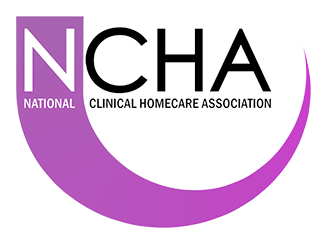FOR healthcare professionals & Pharma Companies
Introduction to Clinical Homecare Nursing
Clinical Homecare nurses and Clinical Support Workers play a pivotal role in delivering specialised care to patients outside of traditional hospital settings. Clinical Homecare nurses are dedicated professionals that are registered nurses with extensive training, enabling them to administer specialist medicines and therapies, closely monitor patients’ conditions, educate patients and their families on managing health issues and treatments, and collaborate with healthcare teams to achieve optimal outcomes.
Value of Clinical Homecare Nurses
Here are some key aspects of the value that Clinical Homecare nurses bring to patients and the broader healthcare system:
Enhancing Patients' Lives
Clinical Homecare nurses empower patients to maintain independence by receiving care closer to home. This environment fosters a sense of familiarity and security.
Patients can sustain relationships with loved ones, as they remain connected to their support networks during their health journey.
The flexibility of home-based care allows patients to pursue work or education, contributing to their overall well-being.
Benefits to Patients
Personalised Attention: Clinical Homecare nurses provide individualized care, tailoring treatment plans to each patient's unique needs.
Reduced Stress: Being in a familiar environment reduces stress and anxiety for patients, positively impacting their recovery.
Improved Adherence: Patients tend to adhere better to treatment regimens when receiving care closer to home, leading to better health outcomes.
Benefits to the NHS and Society
Cost-Effective: Clinical Homecare significantly reduces the burden on hospitals and healthcare facilities. It allows resources to be allocated more efficiently
Reduced Hospital Admissions: By preventing unnecessary hospitalisations, Clinical Homecare contributes to cost savings and frees up acute care beds.
Integrated Care: Nurses collaborate with other healthcare professionals, ensuring seamless coordination and continuity of care.
Efficient Medication Management: Homecare staff and clinicians oversee medication administration, minimising errors and promoting patient safety.
85% of clinical Homecare patients are more likely to report that their medicines were fully explained to them, compared to the national average of 62% (independent pt survey)
Statistics
Statistics further highlight the impact of National Clinical Homecare:
Approximately 600,000 active patients receive Clinical Homecare, with 240,000 on clinical services.
Over 3.15 million deliveries of medicines and supplies occur annually.
1.45 million prescriptions are processed each year.
There are 18 NCHA Full Members providing homecare services.
625,000 planned episodes of clinical care take place, combining both face-to-face and remote interactions.
A dedicated team of 2,200 clinical staff ensures the delivery of high-quality homecare services
62% of people receiving clinical homecare reported that it has allowed them to stay in work or education
Reference:
Best Kept Secret: The Value Of Clinical Homecare To The NHS, Patients And Society. National Clinical Homecare Association, 2024: https://www.clinicalhomecare.org/bestkeptsecret/

